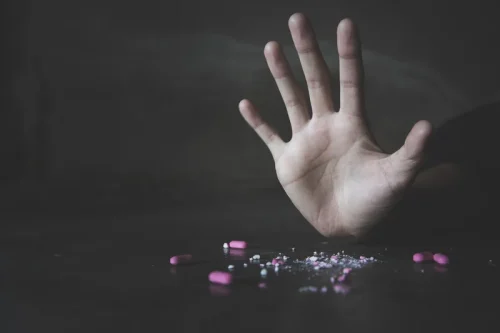
Always consult your healthcare provider to determine what's safe for you. Glomerulonephritis is a condition in which the filtering structures of the kidneys become inflamed and damaged. People who report drinking moderately tend to have higher levels of education, higher incomes and better access to health care, said Naimi.
Myth: Don't drink more fluids after drinking alcohol

Discover the benefits and heroin addiction strategies to make the most of this transformative challenge. Discover strategies to conquer your gaming habits and regain control of your life. Discover effective strategies, mindful practices, and support for regaining focus and control.

Benefits of Inspiring Addiction Recovery Quotes
Your kidneys are complex, performing several important jobs to keep you healthy. Unfortunately, alcohol has the potential to interfere with each of these functions. These compounds may cause oxidative stress and inflammation that damage kidney structures (16, 17, 18). On top of that, oxidative stress can worsen existing kidney problems. If the condition becomes severe, it will ultimately lead to kidney failure.
- If you have CKD, you may eventually require dialysis or a kidney transplant.
- Discover how to cultivate a growth mindset for better mental health with practical strategies and support.
- Alcohol is a diuretic, which means it increases urine production and can lead to dehydration.
Alcohol and Kidney Disease: Prevention
- This serious condition will likely require prompt medical attention.
- In the short term, binge drinking can lead to AKI, but the repeated stress it places on the kidneys can result in permanent damage.
- These hormones help stimulate red blood cell growth and regulate blood pressure.
- Many people wouldn't know what is considered a 'reasonable' or 'healthy' amount of alcohol.
The diuretic effect of alcohol can lead to dehydration, as the kidneys are forced to excrete more fluid than usual. Dehydration puts a significant strain on the kidneys, which are responsible for maintaining the body's fluid balance. Alcohol consumption is a common practice in many cultures and social settings.
What are the Common Signs of Bulimia?
If you are concerned about your alcohol consumption and its effects on your kidneys, support resources are available. Seeking medical advice, exploring treatment options, and tapping into community support can be instrumental in taking control of your alcohol intake. Remember, it's never too late to prioritize your kidney health. In acute kidney injury (AKI), which can result from alcohol-induced dehydration, prompt medical intervention, and rehydration can often lead to a full recovery. Alcohol affects the kidneys' ability to maintain the correct balance of water and electrolytes in the body. This leads https://ecosoberhouse.com/ to impaired function of the kidneys and increases the risk of developing kidney stones.

Why You Shouldn't Keep Your Child's Addiction Hidden
Imbalances in electrolyte levels can further compromise kidney function and overall health. The primary mechanism by which alcohol affects the kidneys is through its diuretic effect. Alcohol inhibits the release of an antidiuretic hormone called vasopressin, which how does alcohol affect your kidneys is responsible for regulating the body's fluid balance. As a result, the kidneys produce more urine, leading to increased urination and potential dehydration. Understanding the basic functions of the kidneys is essential to understand how alcohol can potentially impact their normal functioning. In the following sections, we will delve deeper into the mechanism of action and the effects of alcohol on kidney function.

Importance of Medical Advice
Discover the impact of rejection on self-esteem and explore coping strategies to build resilience and confidence. Don't keep your child's addiction a secret; discover the dangers and learn how to seek help and support. Learn from historical figures who revolutionized the field.
About Medical News Today
Excessive drinking can have serious long-term effects on your health. Chronic kidney disease, or CKD, is a condition where your kidneys are so damaged that they cannot filter blood properly. Long-term, heavy alcohol use can lead to acute kidney injury, chronic kidney disease, and kidney failure. Moderate alcohol use may have no relation to kidney disease, but you should limit alcohol intake to protect your kidneys and overall health.
Unveiling the Devastating Link: Financial Stress and Mental Health Impact

Chronic dehydration puts you at greater risk for these adverse effects. Kidneys' normal function is to filter out harmful substances, including alcohol, from your blood. Alcohol consumption causes your kidneys to be less efficient at filtering your blood. In addition, the dehydrating effects of alcohol impact your kidneys' ability to maintain the optimal amount of water in your body. This can have negative effects on all the cells and organs in the body.
It's only done when you've temporarily or permanently lost most or all of your kidney function. Alcohol affects several of your body's organs, including your kidneys. Drinking in moderation (one drink a day for women and two drinks a day for men) usually won't harm your kidneys. Although most people have two kidneys, only one kidney can function just as well as two. You may need to take some precautions to avoid injury to your kidney, though, and see a doctor for regular kidney health tests.